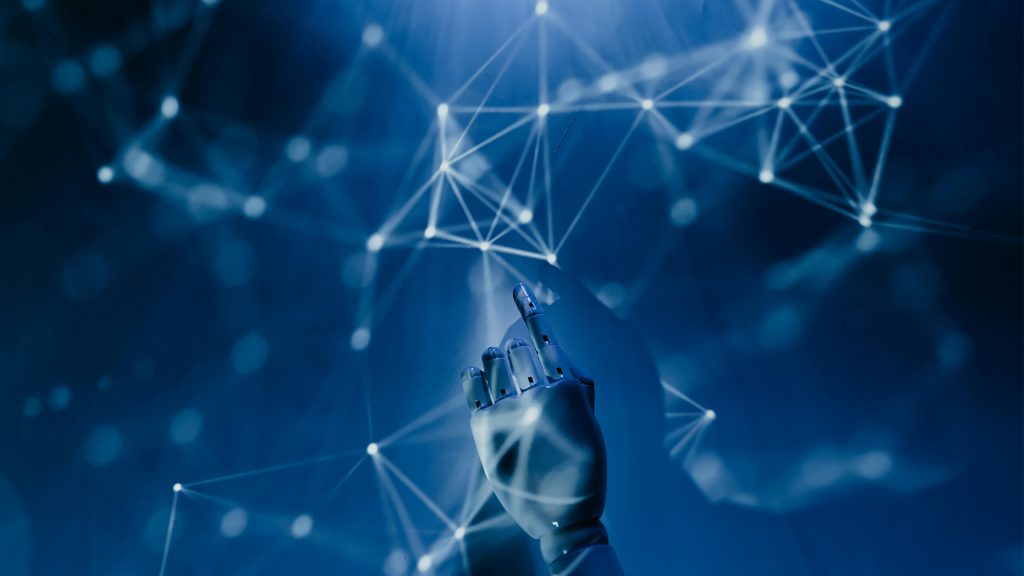In Dante’s Divine Comedy, the poet journeys through realms of despair and redemption, seeking truth amidst uncertainty. Like Dante, humanity now stands at a crossroads, navigating the labyrinthine rise of artificial intelligence. At Bolgiaten, our mission resonates with this journey: to illuminate the path where data, technology, and human insight converge, fostering clarity, connection, and trust in an age shadowed by doubt. As we leverage AI and Earth Observation to solve global challenges, we are reminded that, like Dante’s journey, ours is not merely technical but profoundly human—a quest to restore the fragile bonds that make us whole.
In the swirling storm of technological advancement, artificial intelligence (AI) stands as both an achievement and a reckoning. It has transformed industries, redefined possibilities, and ignited imaginations. Yet, it has also brought humanity to an unsettling crossroads, raising questions about the very fabric of our existence: trust.
Trust is not just an abstract concept but the foundation upon which relationships, societies, and civilizations are built. It is the invisible contract that binds individuals, communities, and institutions, enabling cooperation and progress. Without trust, even the most advanced technology cannot save us from the disarray of suspicion and alienation. In this critical juncture of AI’s rise, we must grapple with the erosion of trust—not as a technological failure, but as a human challenge.
The Trust Crisis in the Age of AI
AI has introduced unparalleled levels of uncertainty into our lives. It influences the decisions of governments, shape’spublic opinion, and powers the platforms through which we connect and communicate. Algorithms decide which news we see, which job candidates are shortlisted, and which medical treatments are recommended. Yet, for all its power, AI operates as a black box for most people—a mysterious, unaccountable force.
This opacity breeds doubt. How can we trust decisions made by systems we neither understand nor control? When AI gets it wrong—discriminating against minorities, spreading misinformation, or amplifying harmful ideologies—it feels less like a glitch and more like a betrayal. But the true betrayal lies elsewhere: in the misuse of AI by those who design, deploy, and benefit from it.
It’s not AI that deceives us, but humans using AI to deceive. The erosion of trust in this era is not solely about the technology; it is about the intentions behind it. Who decides how AI is used, and for whose benefit? And how do we hold those people accountable?
The Alienation of the Algorithmic Age
AI has not only shifted how we make decisions but also how we relate to one another. In a world mediated by machines, the directness of human connection feels increasingly out of reach. Social media, powered by AI algorithms, has redefined “friendship” and “community,” often turning them into commodities. The platforms that promised to bring us closer have, in many ways, driven us apart, replacing empathy with echo chambers and dialogue with division.
This alienation goes beyond personal relationships. Institutions that once commanded trust—governments, media, and corporations—now feel distant and unapproachable, obscured by layers of algorithmic decision-making. The result is a society where scepticism is the default, and cynicism thrives. Trust, once a shared foundation, becomes fragmented, leaving individuals feeling unmoored and isolated.
Rebuilding Trust: A Human Endeavor
The crisis of trust in the age of AI is not a technological problem but a human one. It is not AI that has failed us but our own stewardship of its potential. To rebuild trust, we must look inward and ask hard questions about our values, intentions, and priorities. Technology, for all its power, is a tool—a reflection of those who wield it. If trust is to be restored, it must begin with us.
A. Transparency and Accountability
Trust flourishes in the light of transparency. Organisations deploying AI must prioritise openness about how their systems work, what data they use, and the potential risks involved. Accountability mechanisms should be robust and accessible, ensuring that those harmed by AI have recourse. Transparency is not just a technical requirement; it is a moral imperative.
B. Ethical Leadership
The leaders shaping AI policy and development have a profound responsibility. Their choices will define whether AI serves humanity or exploits it. Ethical leadership means prioritizing long-term societal well-being over short-term gains, ensuring that AI aligns with values like fairness, inclusivity, and respect for human dignity.
C. Education and Empowerment
A key driver of mistrust is the knowledge gap between those who understand AI and those who do not. Bridging this gap requires widespread education initiatives, equipping people with the tools to critically evaluate AI’s role in their lives. Empowering individuals to engage with AI responsibly fosters trust through understanding.
D. Reclaiming Human Connection
While AI can enhance our lives, it should never replace the human connections that define us. Trust begins in the simple act of looking each other in the eye, unmediated by screens or algorithms. As we embrace technology, we must also prioritize spaces for authentic human interaction—moments where trust can grow naturally and meaningfully.
A Test of Humanity
The rise of AI is not a test of technology but a test of humanity. It challenges us to reflect on what we value and how we act. Will we allow technology to erode the fragile threads of trust that bind us, or will we rise to the occasion, using AI to strengthen rather than weaken those threads?
The answer lies in our choices. Trust is not something we can demand from others or from machines—it is something we must cultivate, protect, and earn. It is a shared responsibility, requiring effort and intention from individuals, organizations, and societies. We must ask ourselves: What kind of world do we want to create? One where trust is a relic of the past, or one where it becomes the foundation of a brighter, more connected future? The choice is ours to make—not AI’s.
Rediscovering the Fragile Threads of Trust
As we navigate this era of rapid technological change, let us not lose sight of the most essential lesson: Trust is not broken by machines but by the hands that operate them. It is up to us to reclaim the ability to trust, to see beyond the algorithms and find the humanity in each other.
The journey to rediscover trust will not be easy, but it is necessary. It begins with honesty, accountability, and a commitment to our shared values. It requires us to remember that, in the end, trust is not a technological problem—it is a profoundly human one.
In the End
Dante’s journey teaches us that even in the darkest moments, trust and purpose can guide us toward redemption. At Bolgiaten, we embrace this lesson as our guiding principle. As we blend cutting-edge technology with human ingenuity, our mission is to confront the challenges of this AI-driven age with transparency, accountability, and integrity. Like Dante emerging into the light, we believe that by rediscovering trust—both in each other and in our tools—we can shape a future where technology serves humanity, not divides it, and where our shared values shine brighter than any algorithm.

